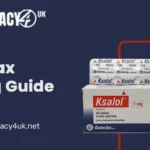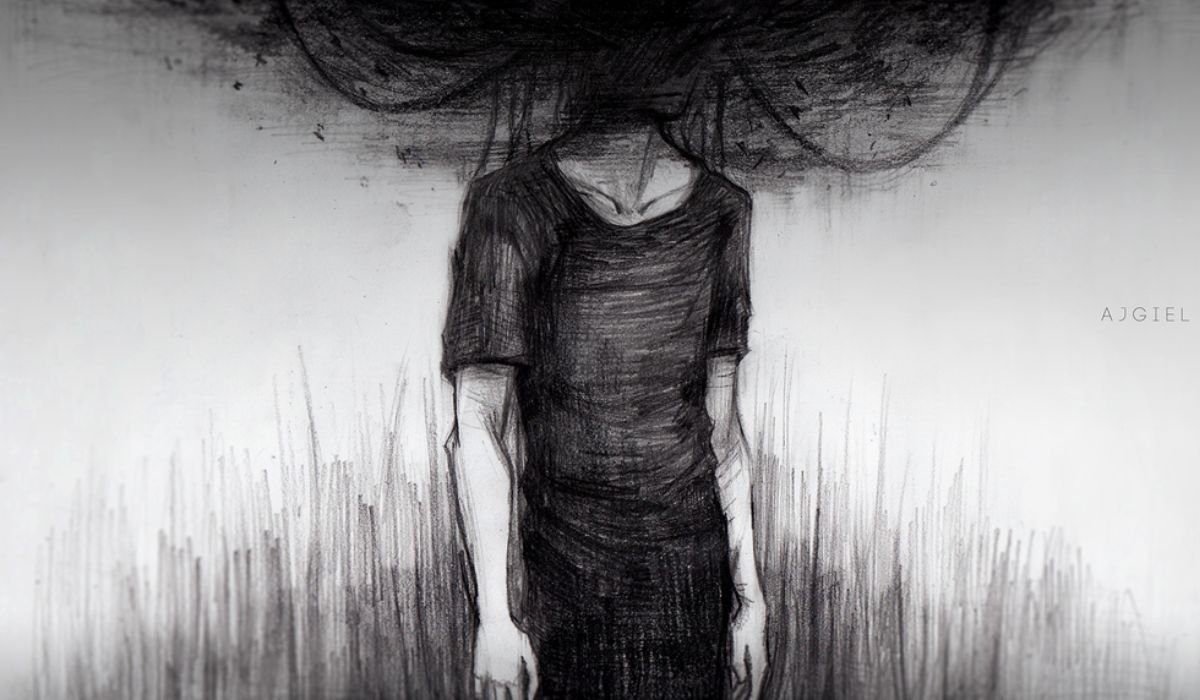Introduction to Gaslighting Myself to Not Be Depressed
Gaslighting is typically understood as a form of manipulation where someone makes another person doubt their reality. But what happens when we gaslight ourselves? The concept of gaslighting oneself to not be depressed has gained attention, especially on platforms like Tumblr, where people openly discuss mental health struggles. This phenomenon involves convincing yourself that your emotions aren’t valid or that you’re not really experiencing what you’re feeling, particularly when it comes to depression.
On Tumblr, people often share their inner conflicts, and the notion of gaslighting oneself has become a common theme in many posts. This behavior is dangerous because it prevents individuals from acknowledging their mental health needs. Instead of seeking help, they invalidate their feelings, pushing themselves deeper into depression. Acknowledging and addressing this behavior is crucial to improve one’s mental and emotional well-being.
Causes of Gaslighting Oneself
There are many factors that can lead someone to gaslight themselves. These causes are often rooted in societal pressures, personal experiences, and deep-seated insecurities.
1. Societal Pressures and Expectations
Society often sets unrealistic standards for how we should behave, look, and feel. When these standards aren’t met, many of us may feel compelled to dismiss our emotions to appear more “put together.” This societal pressure can lead people to believe that they aren’t allowed to feel sad or depressed.
2. Fear of Judgment or Rejection
The fear of being judged or rejected by others often results in self-gaslighting. Many people worry about appearing weak or vulnerable, leading them to downplay their feelings or convince themselves they aren’t really struggling. In an effort to avoid seeming “dramatic,” they ignore their own mental health issues.
3. Internalized Negative Beliefs and Self-Doubt
When people have been told for years that their emotions are “too much” or “invalid,” they begin to internalize these ideas. Over time, these beliefs become ingrained, and individuals start gaslighting themselves by convincing themselves that they don’t deserve help, love, or care.
4. Trauma and Past Experiences
Traumatic experiences can also play a significant role in this behavior. Individuals who have been through trauma may gaslight themselves as a coping mechanism. They may dismiss their emotional pain as insignificant or convince themselves they’re exaggerating their experiences. This is particularly common in those who have faced emotional abuse in relationships or childhood.
Consequences of Gaslighting Oneself
The effects of gaslighting oneself can be severe, especially when it comes to mental health. These consequences impact not only the individual’s emotional state but also their relationships and overall quality of life.
1. Worsening Mental Health Symptoms
Gaslighting yourself to avoid confronting depression doesn’t make the feelings go away—it amplifies them. Ignoring or invalidating your emotions can lead to worsening symptoms of depression, anxiety, and other mental health issues.
2. Difficulty Forming Healthy Relationships
When you can’t trust your own emotions, it becomes harder to connect with others. Gaslighting yourself leads to a lack of authenticity in relationships because you may feel disconnected from your true self.
3. Lack of Self-Worth and Confidence
Over time, gaslighting oneself erodes self-esteem. Constantly doubting your feelings and experiences causes you to lose trust in yourself, leading to a diminished sense of self-worth and confidence.
4. Increased Risk of Self-Harm or Suicidal Thoughts
The emotional turmoil caused by invalidating one’s own emotions can increase the risk of self-harm or suicidal thoughts. When someone feels as though their feelings aren’t valid, they may believe that they are beyond help, leading to dangerous coping mechanisms.
Recognizing the Signs of Gaslighting Oneself
It’s important to recognize when you’re gaslighting yourself so you can begin to take steps toward healing. The signs are often subtle but can have a profound impact on mental health.
1. Constant Questioning of Your Feelings and Experiences
If you frequently find yourself doubting whether your emotions are valid or real, this is a sign that you may be gaslighting yourself. For example, telling yourself, “Maybe I’m overreacting” or “It’s not that bad” can be forms of self-gaslighting.
2. Minimizing Your Emotions or Problems
Do you often tell yourself that your problems aren’t significant or that other people have it worse? This tendency to minimize your struggles is another form of invalidating your feelings.
3. Feeling Like You’re Going Crazy
Gaslighting yourself can lead to feeling disconnected from reality. If you feel like you’re losing touch with your own experiences or that you’re “crazy” for feeling a certain way, this could be a result of self-gaslighting.
4. Difficulty Trusting Your Own Judgment
When you constantly question your own thoughts and emotions, it can become difficult to trust your instincts or make decisions, leading to feelings of helplessness.
Strategies for Overcoming Gaslighting Oneself
The good news is that self-gaslighting can be unlearned with time, effort, and support. Here are some strategies to help you overcome this harmful behavior.
1. Challenging Negative Thoughts and Beliefs
Start by identifying the negative beliefs that cause you to gaslight yourself. Challenge these thoughts with evidence and self-compassion. For example, if you find yourself thinking, “I’m just being dramatic,” ask yourself if you would say the same thing to a friend in your situation.
2. Building Self-Compassion and Acceptance
Learning to treat yourself with kindness is key. Self-compassion involves accepting your feelings without judgment and understanding that everyone struggles. Practice telling yourself that it’s okay to not be okay.
3. Seeking Professional Help
Therapy or counseling can provide valuable tools for overcoming self-gaslighting. A mental health professional can help you recognize patterns of self-sabotage and develop healthier ways of thinking and coping.
4. Connecting with Others Who Understand
Sharing your experiences with people who have gone through similar struggles can be incredibly validating. Online communities like Tumblr offer a space for people to express themselves and find support from others who understand.
The Importance of Self-Care
Self-care is essential when working to overcome self-gaslighting. Prioritizing activities that nourish your mind and body can help you reconnect with your emotions.
1. Prioritizing Self-Care Activities
Make time for activities that help you relax and recharge, such as exercise, hobbies, or spending time in nature. These activities can improve your mood and make it easier to confront your feelings.
2. Setting Boundaries and Limiting Exposure to Negative Influences
Identify the people or situations that trigger self-doubt or negative thinking, and set boundaries to protect your mental health. Limiting exposure to negativity can reduce the likelihood of self-gaslighting.
3. Building a Support Network
Surround yourself with friends and loved ones who encourage you to express your feelings. Having a support system makes it easier to break the cycle of self-gaslighting.
Community and Support
One of the best ways to combat self-gaslighting is by finding community and support. Whether through online platforms like Tumblr or in-person support groups, connecting with others can help you feel less isolated.
1. Sharing Experiences
Encourage readers to share their stories about self-gaslighting. By speaking openly about these struggles, people can find comfort and validation in knowing they’re not alone.
2. Promoting a Supportive Online Community
Platforms like Tumblr can be a source of support when used in a positive way. Encourage readers to engage with communities that promote mental health awareness and offer a safe space for discussion.
3. Finding Mental Health Resources
Provide readers with resources for finding professional help and support. Whether it’s through therapy, hotlines, or online forums, there are many ways to get the help needed to overcome self-gaslighting.
YOU MAY ALSO LIKE: Satan Can Not Create, Only Corrupt and Destroy: A Deep Dive
Conclusion
Self-gaslighting is a harmful behavior that can worsen depression and damage mental health. It’s essential to recognize the signs, challenge negative thoughts, and seek support. By practicing self-compassion and surrounding yourself with understanding individuals, it’s possible to break the cycle of invalidating your own emotions and start embracing your mental well-being.
FAQs
What does “gaslighting myself to not be depressed” mean?
It refers to invalidating your own feelings of depression, convincing yourself that you’re overreacting or that your emotions aren’t real.
Why is self-gaslighting harmful?
Self-gaslighting worsens mental health by preventing you from acknowledging and addressing real feelings of depression and anxiety.
How can I stop gaslighting myself?
Challenging negative thoughts, practicing self-compassion, seeking therapy, and connecting with supportive communities are effective strategies.
Why do people gaslight themselves about depression?
This behavior often stems from societal pressure, fear of judgment, internalized negative beliefs, and past trauma.
Is discussing gaslighting on Tumblr helpful?
Yes, discussing self-gaslighting on platforms like Tumblr can provide a sense of community, validation, and support from others who understand.










